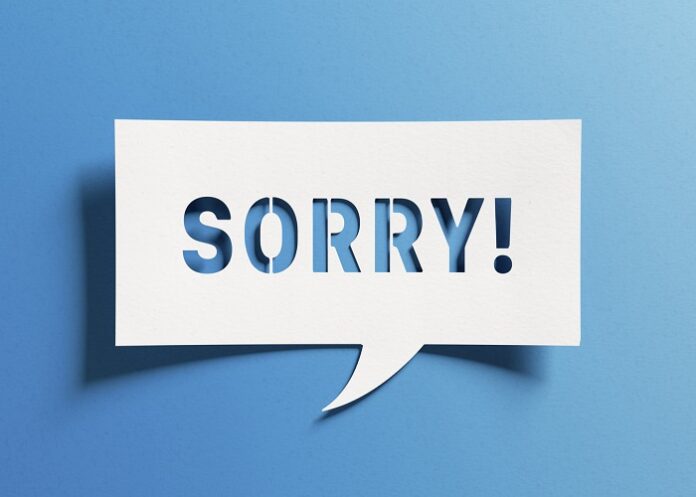An apology should never be seen as an admission of liability, writes Medical Protection’s South Africa lead Dr Graham Howarth.
In response to an article in the August issue of SA Medical Journal: Saying sorry – should a ‘safe space’ be created to allow effective communication between healthcare practitioners and aggrieved parties after an iatrogenic event in South Africa?, Howarth writes: “Rather, it is an acknowledgement that something has gone wrong, and a way of expressing empathy, and it would be well advised for our laws in SA to reflect.”
In his letter published in the latest issue of the journal, he writes:
Khan and Laubscher highlight the often-overlooked importance of an apology when an iatrogenic adverse event occurs. The culture in healthcare should be one of openness and honesty, so that professionals feel they can explain an adverse outcome with confidence, apologise where and if necessary, learn from any mistakes that may have contributed to an adverse patient outcome, and make improvements to minimise the risk of the same thing happening again.
Unfortunately, as the authors point out, there is currently no legislation in South Africa that protects healthcare practitioners during litigation should they issue an apology to a patient, as the apology may be construed as an admission of liability.
This is despite an audit of medico-legal cases, claims and complaints ordered by the Department of Health in 2012 that recommended drafting legislation for the introduction of apology laws as a way of tackling the high number of medical negligence claims that were occurring annually.
Why this recommendation was not acted upon is unknown, but the current situation means that many healthcare practitioners are reluctant to explain or apologise for fear of blame or personal recrimination.
When a patient or relative does not receive an explanation or the apology they believe they deserve, or which they feel would bring closure, they are more likely to pursue civil or criminal action, or to contact the HPCSA – particularly in the absence of a good complaints handling process in SA.
Medical Protection, which protects the professional interests of more than 300 000 healthcare professionals around the world, including >30 000 in SA, has seen first-hand the benefits of laws that provide protection to those issuing apologies when their actions may have resulted in harm to the patient.
In jurisdictions where such laws exist, apologies have helped prevent formal complaints from escalating or even occurring at all.
Perhaps more important than the sequelae averted by these changes may be a reflection of less dissatisfaction by patients or families after an explanation and/or an apology.
Saying sorry should never be viewed as an admission of liability. Rather, it is an acknowledgement that something has gone wrong, and a way of expressing empathy.
It would be well advised for our laws in SA to reflect this.
Dr Graham Howarth,
Medical South Africa Lead, Medical Protection, Leeds.
Study details
Saying sorry – should a ‘safe space’ be created to allow effective communication between healthcare practitioners and aggrieved parties after an iatrogenic event in South Africa?
M S Khan, M C Laubscher.
Published in SA Medical Journal Volume 118 No 8
Abstract
The incidence of medical negligence claims is well documented in South Africa (SA). Civil and criminal processes are in place to deal with this, and the matter may be reported to the Health Professions Council of SA (HPCSA). There is a school of thought that suggests that these processes do not provide sufficient relief to an affected party. The processes are not always satisfactory; an aggrieved party may wish to know the reasons why a particular error occurred and why a healthcare practitioner acted in a particular manner. In addition to this, they may want to receive a sincere apology. Medical practitioners may also want to communicate with patients or family members of a patient who has passed away as a result of an iatrogenic event, but may be fearful of litigation. This article considers the current position in SA in relation to issuing an apology related to an iatrogenic event, and consults foreign jurisdictions for further guidance on the topic.
See more from MedicalBrief archives:
The legal complexities of saying sorry after adverse events
SA doctors want an ‘open disclosure’ culture over medical mistakes
Prosecuting healthcare professionals for culpable homicide – who benefits?

